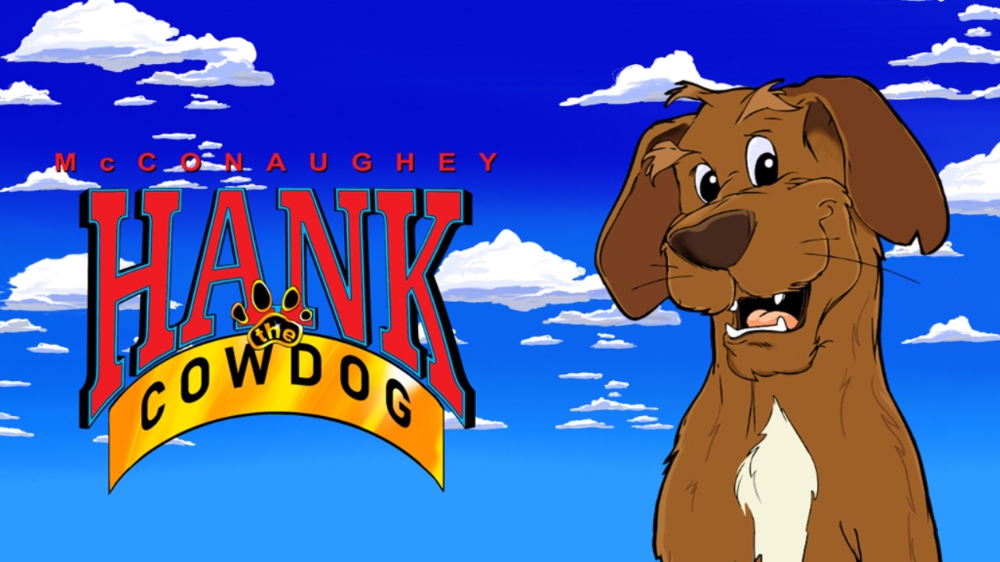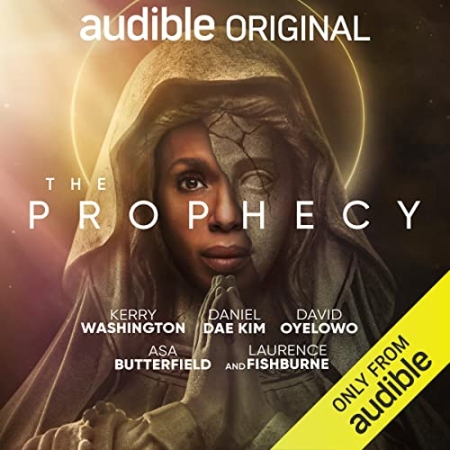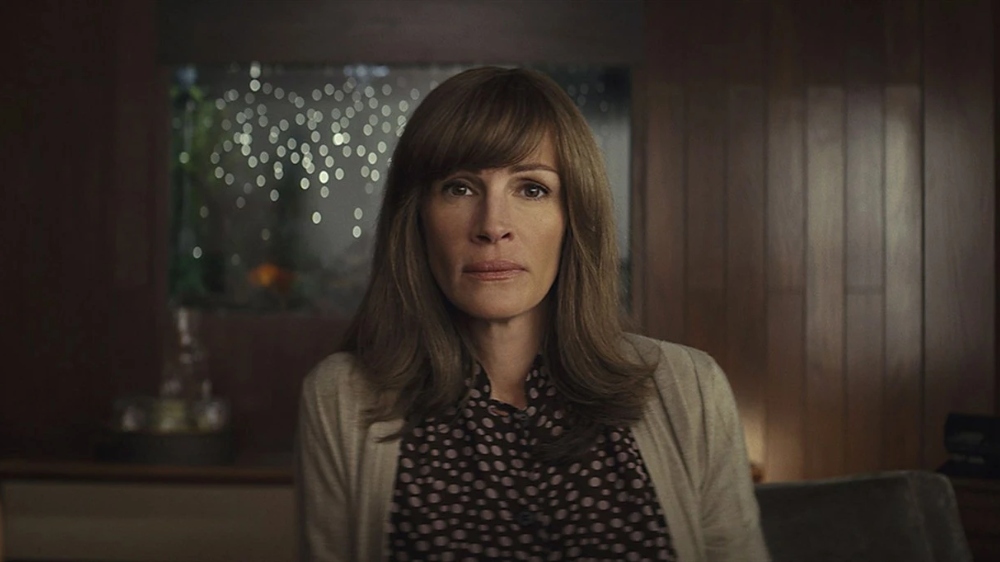
Like most people these days, I spend a fair amount of my day listening to podcasts. Every morning, I get on my bike and ride for a couple hours, listening to a series of entries that vary across the spectrum. There are podcast versions of daily news and sports shows, political opinion stuff like Pod Save America, interview options like Marc Maron’s WTF, a Mission: Impossible podcast called Light the Fuse, and lots more.
I like mixing it up and listening to several different things each day, to expand my horizons as much as possible, while also keeping up on current events. Part of the trick is listening to everything at 2x speed, which I love but which drives my wife crazy if we’re listening to something together in the car. Then, I have to slow it down to 1.25x speed. Compromise, after all, is a cornerstone of any good relationship.
What I’ve never really gotten into, however, is scripted content, which is only odd because I otherwise consume an enormous amount of it. My distaste for fictionalized podcasts feels like something of an anomaly these days, especially since the COVID-19 pandemic started, but we like what we like. Regardless of how I feel about it, though, there is no question that it is a rising form of entertainment to which more and more people are turning.
It’s almost as if we’re going back in time, bringing back the radio shows that used to be all the rage. People tuned in to these series, allowing their imaginations to fill in the blanks that the lack of visuals couldn’t give them. Radio shows are firmly rooted in the past, a relic of a bygone era… or at least they were. But now? I think it’s impossible to think of them as anything other than a growing opportunity for content to be created and distributed, especially if you can’t get a project off the ground as a movie or TV show.
If you’re not sold on this notion, then you haven’t really been paying attention, because more and more actors are signing on to these projects, with new announcements of this performer or that one joining such endeavors just about every day.

Oscar winners like Rami Malek and Matthew McConaughey (who co-created his scripted podcast, Hank the Cowdog) have done scripted podcasts, as have a bunch of famous folks including Jake Gyllenhaal, Jamie Lee Curtis, Demi Moore, Kirsten Dunst, Jesse Plemons, Cynthia Erivo, Chloe Grace Moretz, and Kerry Washington, among others.
How did this happen? The wave sort of snuck up on me, but as I noticed more and more famous names attaching themselves to these podcasts, I looked into it a bit more. The number of Americans who listen to podcasts continues to rise, with 62 percent having listened at least once, 38 percent in the last month, and 26 percent in the last week. 177 million people reportedly identify as podcast listeners these days, and that’s an eight percent gain over last year. The total number of listeners has increased every year since 2013 when only 27 percent of people identified themselves as podcast listeners. That means that, in less than 10 years, the numbers have more than doubled.
I looked around and couldn’t really find any breakdowns of those who listen to scripted podcasts versus unscripted ones, but I don’t really think it matters. What does matter is the rise of the medium on its own, and how important it has become in the grand scheme of pop culture. This new outlet that’s effectively a remake of an old one offers creatives yet another outlet for their work, while also keeping the avenue open to turn it into something bigger.
Plenty of TV series started as podcasts, such as Dirty John, The Dropout, WeCrashed, and The Shrink Next Door, just to name a few, but there are plenty of other podcasts out there, and lots more coming. True, all of the above are fact-based ones, but there are fictionalized pods that have made the jump as well, like Limetown and Homecoming, to name just two.

It’s more than the simple rise of the podcast medium that’s fascinating to me, though. It’s also the increased interest of actors who probably would have dismissed such roles a couple years ago. I certainly think the pandemic has something to do with so many of them signing on to do these things, but the cynical side of me wonders if they do so because they see a larger payday when a deal is signed to adapt it. It’s a speculative attitude, like when I buy certain indie comics on the off chance they might be turned into a movie or TV show, and therefore their value could skyrocket. I’ve lucked out a couple times, sure, but mostly they’re just something fun to read before I put them into a box or try to offload them on eBay.
I suspect the same is true with these projects, with actors having exactly that attitude about the work and why they get involved. Sure, plenty of them do it because they like the material, but I know enough about agents that they’re not going to be terribly eager to have their clients attach themselves to such low-budget projects unless there’s a chance for significant upside.
That said, just because you’re on board one of these things doesn’t mean you’ll get to run with it when it takes off. A perfect example is the aforementioned series Homecoming, which started out as a podcast starring Catherine Keener, Oscar Isaac, and David Schwimmer. It eventually turned into an Amazon Prime show, with Julia Roberts, Stephan James, and Bobby Cannavale, respectively, replacing the original talent.
Now, did the original three have a deal wherein they were paid for their work and got a bonus when it was turned into an Amazon show? I can’t say for sure one way or the other, though none of them have any kind of credit on the TV series. For what it’s worth, I can’t fathom why any of them would ever sign on to something like this without having some kind of bonus in place if the podcast is turned into a movie or TV show, but then, I can’t explain a lot of things that happen in this business. Still, I tend to think that it’s a combination of being intrigued by a premise, not having to do as much work to actually make it, and perhaps some future financial upside that combines to make it attractive to talent who would never have considered such audio-only work not so long ago.
Either way, podcasting is a medium we can’t just dismiss. If anything, we’re going to have to pay more attention to it. We used to dismiss comic books, and we all know how that turned out. I believe podcasts are slowly but surely rising to a similar level, and we should ignore them at our own peril.
 Neil Turitz is a journalist, essayist, author, and filmmaker who has worked in and written about Hollywood for nearly 25 years, though he has never lived there. These days, he splits his time between New York City and the Berkshires. He’s not on Twitter, but you can find him on Instagram @6wordreviews.
Neil Turitz is a journalist, essayist, author, and filmmaker who has worked in and written about Hollywood for nearly 25 years, though he has never lived there. These days, he splits his time between New York City and the Berkshires. He’s not on Twitter, but you can find him on Instagram @6wordreviews.
You can read a new installation of The Accidental Turitz every Wednesday, and all previous columns can be found here.





